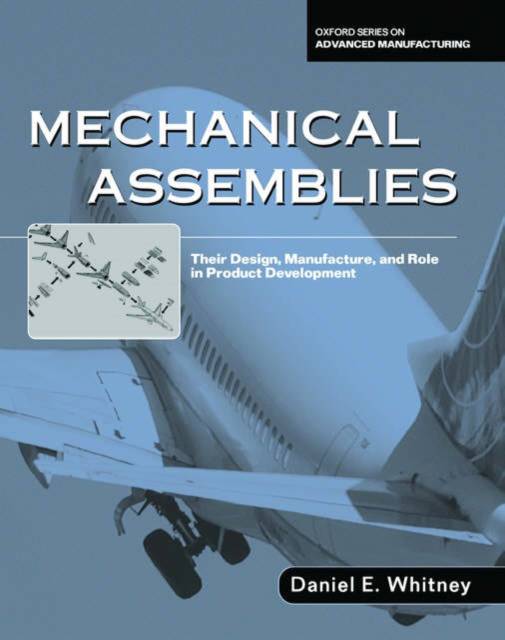
- Retrait gratuit dans votre magasin Club
- 7.000.000 titres dans notre catalogue
- Payer en toute sécurité
- Toujours un magasin près de chez vous
- Retrait gratuit dans votre magasin Club
- 7.000.000 titres dans notre catalogue
- Payer en toute sécurité
- Toujours un magasin près de chez vous
310,95 €
+ 621 points
Description
Assembly is the process by which parts become products that do useful things. It is therefore fundamental to the work of every mechanical engineer. Yet the design of assemblies and the process of assembling them are rarely taught in universities. In Mechanical Assemblies: Their Design, Manufacture, and Role in Product Development, author Daniel E. Whitney draws on more than thirty years of academic and industry experience to fill this significant gap in the mechanical engineering curriculum. The first book to develop a systematic approach to the modeling and design of assemblies, this text addresses the subject on two levels. Assembly in the Small develops a systematic theory for the design of assemblies with their functions in mind, starting from the basic principles of mechanical constraint and including methods for representing assemblies mathematically. In addition, important assembly analysis techniques such as predicting variation and generating assembly sequences are covered using a consistent mathematical formulation. Assembly in the Large deals with the role of assemblies in product development, including product architecture, design for assembly, and manufacturing strategy, as well as design and evaluation of assembly processes and systems. Mechanical Assemblies: Their Design, Manufacture, and Role in Product Development is ideal for advanced undergraduate or graduate courses in design, production, or manufacturing systems. Engineering professionals will find a new way to view the relationship between design and manufacturing and theoretical support for their experience.
Spécifications
Parties prenantes
- Auteur(s) :
- Editeur:
Contenu
- Nombre de pages :
- 544
- Langue:
- Anglais
- Collection :
Caractéristiques
- EAN:
- 9780195157826
- Date de parution :
- 19-02-04
- Format:
- Livre relié
- Format numérique:
- Genaaid
- Dimensions :
- 257 mm x 208 mm
- Poids :
- 1281 g







